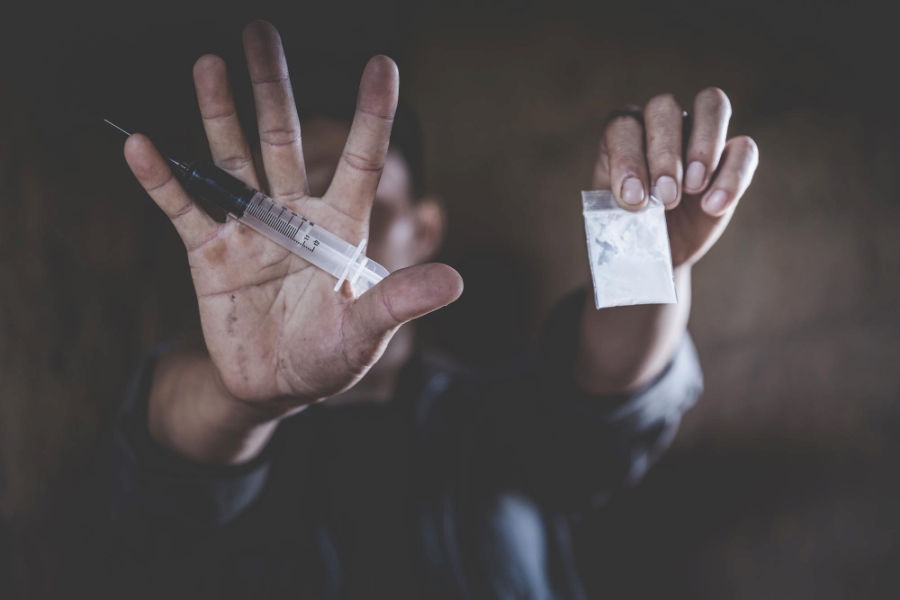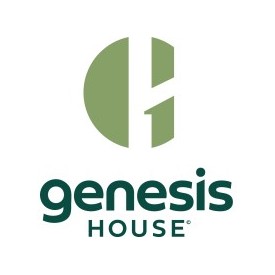A primary reason why people delay or avoid addiction treatment is cost. High-quality treatment can seem expensive at first glance, and it’s normal to feel this way. Fortunately, some options can help reduce treatment prices, including government grants for recovering addicts.
Government organizations like the Substance Abuse and Mental Health Services Administration (SAMHSA) are working each year to provide more resources that help prevent and recover from addiction.
Which organizations offer grants for addiction recovery? How do you know if you qualify for financial help for rehab? Read on as we cover all the details about available grants and how we can help with affordable and effective treatment at Genesis House.
Why Financial Barriers Keep People From Getting Help
A recent study published by the Harm Reduction Journal in 2024 analyzed interview responses from 28 participants in treatment for opioid use disorder. Nearly all participants (96.4%) reported financial barriers leading to delaying or leaving a treatment program early. That included the direct costs of the program itself and the financial burdens that addiction had on the individuals’ lives.
One of the primary reasons for this is the strong connection between substance use disorder (SUD) and job loss. Research from the Journal of Drug and Alcohol Dependence found that those who struggle with alcohol disorders are 30% more likely to lose their job, and those with drug disorders are 90% more likely to lose their job 12 months before seeking addiction treatment.
Another study from the Journal of Substance Use and Misuse cited that poor financial management and legal problems resulting from SUD lead to further financial struggles. 78% of clients in the study mentioned that they felt learning money management skills was essential to success in recovery.
Therefore, funding like government grants is essential to make treatment affordable for those who need it, and rehab centers must teach the right skills to help clients grow during the program. That includes financial management and career counseling that set clients up for success after leaving the treatment center.
What Are Government Grants for Addiction Recovery?
Government grants for substance abuse help pay for addiction treatment programs. These funds are offered by federal, state, or local agencies and don’t need to be repaid. They are meant to better the lives of those in need.
They may help pay for treatment, housing, job training, and reentry programs to offer well-rounded support at different stages of recovery.
Key Federal Resources and Programs
Several federal programs are available that offer grants for drug addicts in recovery or other forms of financial assistance. The key programs include:
SAMHSA Grants
SAMHSA funds qualifying community centers and state programs across the U.S. each year to provide addiction prevention and treatment funding.
One of SAMHSA’s main programs is the Substance Use Prevention, Treatment, and Recovery Services Block Grant (SUBG). It covers all 50 states and several U.S. territories.
Individuals struggling with addiction can benefit by applying for programs through local treatment centers or nonprofits that receive funding.
Recovery & Transitional Grants
Funding for sober living is another key part of making addiction treatment and recovery affordable and sustainable.
The Housing and Urban Development Exchange offers a Recovery Housing Program (RHP) that provides stable housing for individuals in recovery from SUD. The program covers up to two years of housing to help participants get back on their feet during treatment.
The Second Chance Act from the Bureau of Justice Assistance also offers grants for housing for individuals transitioning from incarceration, including those who struggled with SUD.
While these programs focus on housing, they may also facilitate success by helping with job readiness and long-term sobriety support.
Medicaid and State-Funded Rehab
Many state-funded rehab centers will accept Medicaid to cover SUD treatment costs. These are technicallyn’t grants, but they can serve a similar purpose of making treatment more affordable. State-funded programs will often cover detox, inpatient, outpatient, and medication-assisted treatment.
Grants for Sober Living and Aftercare
In addition to Housing and Urban Development’s federal housing grants, state programs, national foundations, and local nonprofits may all offer funding and options that help with sober living and aftercare when you finish a treatment program.
For example, nonprofit organizations like the CLEAN Cause Foundation work to provide funding to help cover costs associated with sober living and addiction recovery.
Reaching out to your state’s Housing and Urban Development division or local nonprofits can help locate resources available in your area. The treatment center you attend for rehab may also offer aftercare options or help you find local resources to prepare for success when you leave the facility.
How to Find and Apply for Recovery Grants
Many grants are administered to treatment centers to fund their efforts, not to individuals directly. Therefore, the best option is to contact a local treatment provider or health department to find out what programs are available and if you qualify.
Even if you don’t qualify for government grants or scholarships, other ways exist to make treatment more affordable. For instance, you could see if you are eligible for a cheap insurance package covering substance abuse treatment through the Health Insurance Marketplace.
We will also help you find treatment options within your budget at Genesis House. We aim to make treatment accessible and effective for all clients who work with us.
Genesis House’s Commitment to Accessible Treatment
While we aren’t a grant provider, our team at Genesis House will work with you to explore all financial options available that can make treatment prices more manageable. That includes insurance verification, partnerships, and flexible care options that fit your budget and needs.
All our drug and alcohol addiction treatment programs are tailored to you to ensure you receive flexible, evidence-based care that leads to long-term sobriety.
Contact Genesis House Today to Learn More
If you’re worried about the cost of rehab, you don’t have to go through it alone. We’re here to support you at Genesis House each step of the way. You can schedule a consultation with us where we can help you explore funding options and flexible treatment that balances affordability and effectiveness.
Contact us today to learn more about how we can help.
References
- Anyanwu, Precious, et al. “Understanding the Financial Barriers to Treatment among Individuals with Opioid Use Disorder: A Focus Group Study.” Harm Reduction Journal, vol. 21, no. 1, 20 Dec. 2024, doi:10.1186/s12954-024-01133-4. https://pmc.ncbi.nlm.nih.gov/articles/PMC11660775/
- Baldwin, Marjorie L., et al. “Job Loss Discrimination and Former Substance Use Disorders.” Drug and Alcohol Dependence, vol. 110, no. 1-2, 1 July 2010, pp. 1–7, doi:10.1016/j.drugalcdep.2010.01.018. https://pmc.ncbi.nlm.nih.gov/articles/PMC2885482/
- Jones-Sanpei, Hinckley A., and Richard J. Nance. “Financial Capability in Addiction Research and Clinical Practice.” Substance Use & Misuse, vol. 56, no. 2, 10 Dec. 2020, pp. 214–223, doi:10.1080/10826084.2020.1853776. https://pubmed.ncbi.nlm.nih.gov/33300413/
- SAMHSA. “Substance Use Prevention, Treatment, and Recovery Services Block Grant.” www.samhsa.gov, 6 Apr. 2023, https://www.samhsa.gov/grants/block-grants/subg
- “Recovery Housing Program (RHP).” Hudexchange.info, 2024, https://www.hudexchange.info/programs/rhp/
- “Second Chance Act (SCA) Programs | Bureau of Justice Assistance.” Ojp.gov, 26 July 2024, https://bja.ojp.gov/taxonomy/term/second-chance-act-sca-programs
- CLEAN Cause Foundation. “CLEAN Cause Foundation.” CLEAN Cause Foundation, 2023, https://www.cleancause.org/
- Healthcare.gov. “Mental Health and Substance Abuse Health Coverage Options.” HealthCare.gov, 2019, https://www.healthcare.gov/coverage/mental-health-substance-abuse-coverage/






